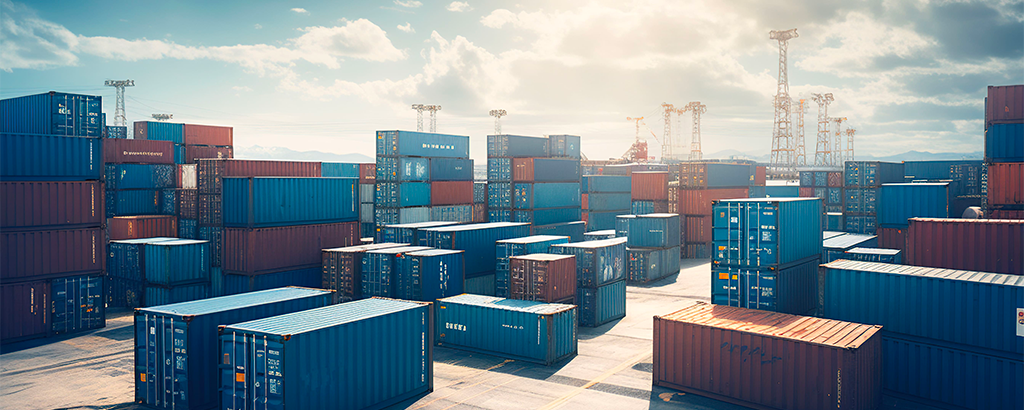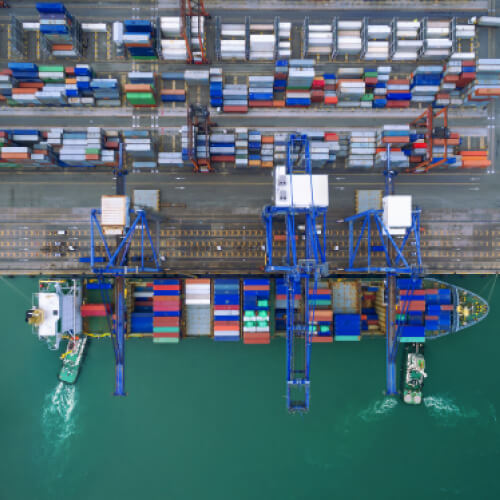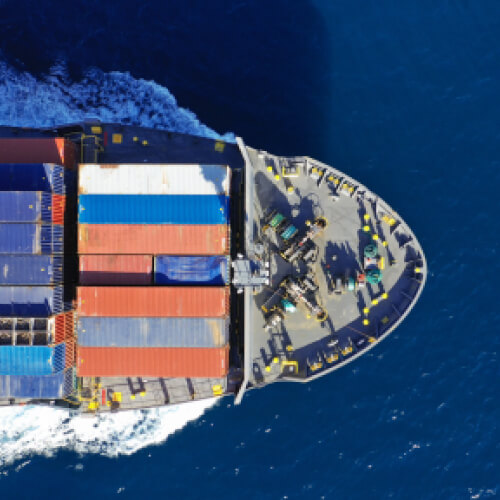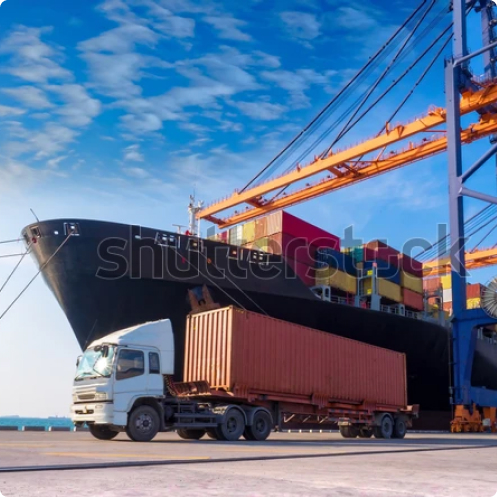Container Freight Stations (CFS) have revolutionized logistics management by offering agile and versatile solutions for cargo consolidation and distribution. These strategic facilities in international shipping have become essential for ensuring the efficiency of supply chains by reducing time and operational costs.
In this article, curated by Savino Del Bene, we will explore in detail what a CFS is, its main functions, and how these stations can optimize import and export processes, highlighting the benefits for companies operating in international trade.
What is a CFS?
A Container Freight Station (CFS) is a logistics facility where crucial operations related to the handling of containerized cargo take place. It serves as a loading and unloading point used to consolidate small shipments from various shippers. In ocean freight, these partial loads are often referred to as LCL (Less than Container Load), while in air freight, standardized PMC pallets are used to optimize space and ensure safe transport. The CFS thus enables the consolidation and sorting of cargo into multiple shipments, whether by sea or by air.
CFS facilities are usually located near seaports or airports to facilitate the transfer of goods between different modes of transport, such as ships, trucks, and trains. This type of facility represents a crucial node in the global supply chain, helping to streamline the shipping process and improve cargo handling.
What are the functions of a CFS?
Container Freight Stations (CFS) perform numerous essential functions for the logistics process of international shipments. These functions not only optimize the movement of goods but also help companies improve operational efficiency, reduce costs, and ensure greater security and control. Let’s take a closer look at the main functions provided by CFS facilities.
Cargo consolidation
One of the most important functions of a CFS is cargo consolidation. This process allows shipments from different shippers to be combined into a single container or pallet, optimizing space utilization and reducing shipping costs. Consolidation is particularly useful in LCL (Less than Container Load) shipments for ocean freight and in the use of PMC pallets for air freight, where cargo from various shippers is grouped to create a full load. This way, even small volumes of goods can benefit from the favorable rates of consolidated shipments, whether by sea or by air.
Cargo deconsolidation
The opposite of consolidation is cargo deconsolidation, which occurs when a container reaches its destination. After unloading, the container is transported to the CFS, where it is opened, and the goods are divided to be sent to their respective recipients. This step is critical to ensure efficient and error-free distribution, especially when goods need to reach different final destinations.
Inspection and customs clearance
A CFS also serves as a central point for inspection and customs clearance operations. Customs authorities can inspect goods directly within the CFS, speeding up the clearance process. Here, goods are verified, and if necessary, the applicable duties and taxes are imposed. The presence of dedicated areas within the CFS for these operations helps reduce waiting times and quickly manage all customs formalities.
Temporary storage
CFS facilities also offer dedicated spaces for the temporary storage of goods. This service is particularly useful when goods need to be stored for a short period before continuing to their final destination. Warehouses within the CFS ensure that goods are protected from damage, theft, and the elements, ensuring safe handling during transit or while awaiting distribution.
Ancillary services
Lastly, many CFS facilities provide a range of ancillary services that go beyond mere cargo handling. These include labeling and repackaging, which ensure that goods are correctly identified and ready for the next stage of transport or sale. Shipping documentation management is another service offered, simplifying the entire logistics process and ensuring that goods comply with the regulations of destination markets.

The two processes in a CFS
Operations within a Container Freight Station (CFS) can be divided into two main processes: the import process and the export process. Each phase requires careful management to ensure the efficient handling of goods.
Import process
In the import process, containers arriving from abroad are unloaded and transported to the CFS. Here, they are opened to allow the goods to be divided among the various recipients. This process also involves customs authorities for the inspection of goods and the payment of duties, if applicable. Once the customs procedure is completed, the goods can be picked up by the recipients or sent to their final warehouse destinations.
Export process
In the export process, the CFS consolidates goods from various shippers that need to be sent abroad. These goods are grouped into a container or pallet, which is then sealed and transported to the port (in the case of sea shipping) or the airport (for air shipments) for loading. The CFS plays a crucial role in optimizing the load by maximizing space within the container or pallet to ensure efficiency and reduce transportation costs.
What are the benefits of a CFS?
Using a Container Freight Station (CFS) offers numerous benefits for both companies and logistics operators. Here are some of the main advantages:
- Space optimization and cost reduction: consolidating shipments from different shippers into a single container allows for the best use of available space and reduces transportation costs. This is especially advantageous for LCL shipments, where companies share container space, lowering overall costs;
- Greater logistics flexibility: CFS facilities allow companies to efficiently manage even small shipments without having to wait for a full container. This flexibility results in faster operations and a more immediate response to market needs, adapting better to volume fluctuations;
- Reduction in customs clearance time: thanks to dedicated customs inspection areas, CFS facilities allow for faster customs clearance, reducing waiting times and minimizing operational delays. Collaboration with customs authorities speeds up the release of goods, improving overall efficiency;
- Cargo security: CFS facilities provide secure spaces for the temporary storage of goods, protecting them from damage or theft during transit. This is especially important for delicate or high-value goods that require additional protection and care;
- Additional services: as mentioned earlier, in addition to cargo handling, many CFS facilities offer extra services such as packaging, labeling, and document management. These additional services help companies prepare their goods for distribution or sale, simplifying logistics and ensuring compliance with current regulations.
Conclusion
Container Freight Stations represent an essential resource for companies looking to optimize their logistics operations, improve efficiency, and reduce costs. Thanks to the numerous benefits they offer, CFSs are a strategic option for those involved in international trade. If your company is seeking solutions to enhance shipment management, considering the use of a CFS can make a significant difference. Savino Del Bene, with its extensive experience in international shipping, offers customized CFS management services to meet the specific needs of every business, integrating warehouse solutions and secure storage areas for all types of shipments.
For ocean freight shipments, we handle container loading and unloading, secure container and chassis positioning, and Verified Gross Mass (VGM) weighing. We provide security seals and anti-tampering devices to ensure cargo integrity, including temperature monitoring for sensitive products. For air shipments, our warehouses are equipped for the efficient handling of ULD pallets, and we offer sorting, weighing, and labeling services. We guarantee storage under controlled conditions and “on-demand” security checks with X-ray scanners and explosives detectors for maximum protection.
Partnering with an experienced provider like Savino Del Bene means optimizing your logistics operations. Interested in learning more? Request a consultation from your local Savino Del Bene contact today.






